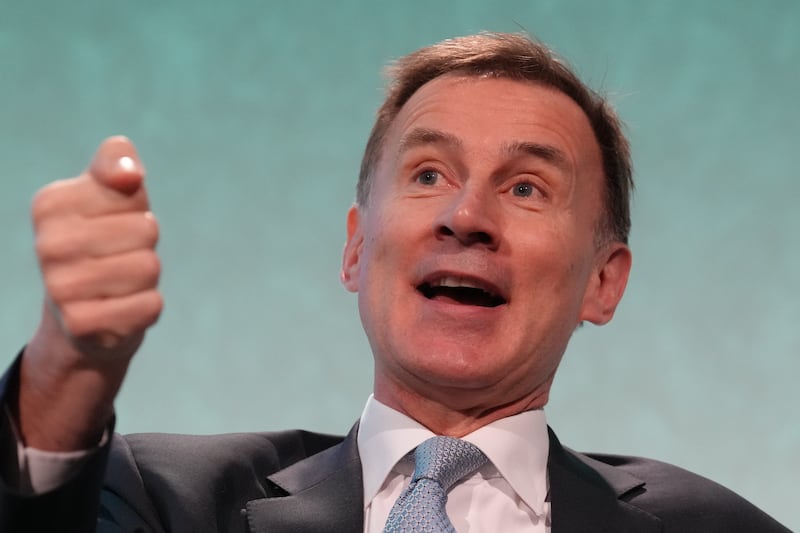The Bank of England has said it expects the downturn in the UK economy to be less severe than first feared, but could take longer to recover than previously predicted.
It also said that the UK economy shrank by more than 20 per cent in the first half of the year after being hammered by the coronavirus pandemic.
The bank improved its "indicative projection" for growth in the economy, forecasting that GDP will shrink by 9.5 per cent this year, following UK Government action aimed at protecting the economy.
In May, the central bank had warned that GDP could slump by 14 per cent this year.
The contraction of the Northern Ireland economy has tended to be greater than the UK average. Danske Bank recently upgraded its forecast, predicting the north's economy will shrink by around 11 per cent this year due to the impact of coronavirus.
The Bank of England also warned on Thursday that it does not expect the UK economy to jump back to pre-virus levels until "the end of 2021".
It had previously said it thought GDP may recover to its pre-virus size by the second quarter of 2021.
The bank revealed its forecasts as it held interest rates at 0.1 per cent after its nine-strong Monetary Policy Committee (MPC) voted unanimously.
The central bank also said it will maintain its current quantitative easing programme at £745 billion.
It also forecast that unemployment will jump, with the rate at 7.5 per cent at the end of 2020, before gradually declining from the start of next year.
This would represent "2.5 million people out of work and searching for jobs", the highest figure since 2013, the bank said.
Governor of the bank, Andrew Bailey, told reporters on Thursday that the economy is "recovering", but stressed that the progress has been "uneven".
He also said that negative interest rates are in its "toolbox", but he has no immediate plans to use the monetary policy measure for the first time.
He said: "This is the first time the Bank of England has said definitively, yes they're in the toolbox.
"The toolbox has a few things in it, even though obviously we are inevitably, like other central banks, in a more constrained world given where rates are."
A consensus of analysts had said they expected rates to be held, while quantitative easing plans were also expected to remain unchanged.
Rates have already been slashed twice, from 0.75 per cent, since mid-March as part of the Bank's measures to try and keep the economy afloat.
The value of the pound picked up against the dollar after traders welcomed the decision to hold rates.
Fiona Cincotta, analyst at Gain Capital, said: "The Bank of England was considerably more upbeat about the recovery than had been expected.
"Upwardly revised growth forecasts, a more rapid recovery than initially feared and no tilting towards negative rates at this time has sent sterling surging towards $1.32."







